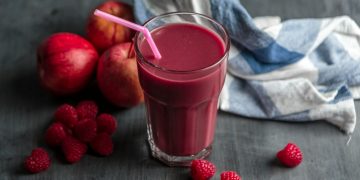Staying properly hydrated is crucial during pregnancy for the health of both the mother and the developing baby. Dehydration can lead to various complications, including preterm labor, low amniotic fluid levels, and an increased risk of birth defects. With morning sickness and other pregnancy-related discomforts, many expectant mothers struggle to consume enough fluids. This is where hydration supplements like Liquid IV come into play. But the question remains: Is Liquid IV safe for pregnancy?
Understanding Liquid IV
Liquid IV is a powdered drink mix that contains a blend of electrolytes, vitamins, and other nutrients designed to enhance hydration and replenish essential minerals lost through sweat and other bodily processes. The main ingredients in Liquid IV include:
- Electrolytes (sodium, potassium, chloride)
- Vitamins (B3, B5, B6, B12, C)
- Cane sugar
- Citric acid
- Stevia
- Flavoring agents
The electrolyte and vitamin blend is intended to help the body absorb and retain water more effectively, alleviating symptoms of dehydration, such as fatigue, headaches, and muscle cramps.
Potential Benefits Of Liquid IV During Pregnancy
- Amniotic Fluid Levels: Adequate fluid intake helps maintain healthy amniotic fluid levels, which are essential for the baby's growth and development. Dehydration can lead to low amniotic fluid (oligohydramnios), increasing the risk of complications like umbilical cord compression and preterm labor.
- Nutrient Delivery: Water is necessary for the efficient transportation of nutrients to the baby through the placenta. Dehydration can impair this process, potentially affecting fetal growth and development.
- Reduced Constipation and Hemorrhoids: Increased fluid consumption can help alleviate constipation and hemorrhoids, which are common discomforts during pregnancy.
- Prevent Preterm Labor: Dehydration has been linked to an increased risk of preterm labor contractions. Maintaining proper hydration may help reduce this risk.
- Alleviate Fatigue: Pregnancy can be physically and mentally exhausting, and dehydration can exacerbate feelings of fatigue. Adequate hydration may help combat this issue.
Liquid IV's blend of electrolytes and vitamins may help address some of these concerns by enhancing hydration and replenishing essential nutrients.
Safety Considerations
While Liquid IV claims to use safe, non-toxic ingredients, it's essential to consult with a healthcare provider before using any supplement during pregnancy. Here are some factors to consider:
- FDA Regulation: Liquid IV is classified as a dietary supplement, which means it is not subject to the same rigorous testing and approval process as prescription drugs. The FDA does not regulate dietary supplements as strictly as medications.
- Ingredient Safety: While the individual ingredients in Liquid IV may be generally recognized as safe (GRAS) when consumed in moderate amounts, their safety during pregnancy may vary. For example, excessive vitamin C intake has been linked to an increased risk of preterm labor and low birth weight.
- Electrolyte Balance: Liquid IV contains relatively high levels of electrolytes, which can be beneficial for hydration but may pose risks if consumed in excess. Electrolyte imbalances during pregnancy can lead to complications like muscle cramps, dizziness, and irregular heartbeat.
- Caffeine Content: Some Liquid IV flavors contain caffeine, which should be limited during pregnancy due to potential adverse effects on fetal growth and development.
- Sugar Content: Liquid IV contains cane sugar, which can contribute to excessive calorie intake and potential gestational diabetes risk if consumed in large quantities.
- Potential Interactions: Liquid IV may interact with certain medications or supplements commonly taken during pregnancy, such as prenatal vitamins or iron supplements.
Recommendations
While Liquid IV may offer potential benefits for hydration during pregnancy, it's crucial to consult with a healthcare professional before using any dietary supplement. Your doctor or midwife can assess your individual circumstances, including any pre-existing conditions, medications, and nutritional needs, to determine if Liquid IV is safe and appropriate for you.
If your healthcare provider approves the use of Liquid IV during pregnancy, it's essential to follow the recommended dosage and consumption guidelines carefully. Overconsumption or misuse of any supplement can lead to adverse effects.
Additionally, it's important to remember that Liquid IV should not be used as a substitute for a balanced diet and adequate water intake. A healthy, varied diet and drinking plenty of water should be the primary sources of hydration and nutrition during pregnancy.
Alternative Hydration Strategies
If your healthcare provider has concerns about the safety or suitability of Liquid IV during your pregnancy, there are alternative strategies to promote hydration:
- Water: Drinking plain water is the safest and most recommended way to stay hydrated during pregnancy. Aim for at least 8-10 cups (64-80 ounces) of water per day, and more if you live in a hot climate or engage in physical activity.
- Fruit-infused Water: Adding slices of fresh fruits like lemons, limes, or strawberries to your water can enhance flavor and encourage increased fluid intake.
- Coconut Water: Coconut water is a natural source of electrolytes and can be a refreshing alternative to plain water.
- Electrolyte-rich Foods: Incorporate more electrolyte-rich foods into your diet, such as bananas, avocados, spinach, and yogurt.
- Avoid Dehydrating Beverages: Limit or avoid beverages that can contribute to dehydration, such as caffeinated drinks, alcohol, and sugary sodas.
Conclusion
While Liquid IV may offer potential hydration benefits during pregnancy, its safety remains a consideration due to limited regulation and potential risks associated with excessive intake of certain ingredients. Consulting with a healthcare professional is crucial before using any dietary supplement during this crucial time. If deemed safe for your individual circumstances, Liquid IV should be consumed in moderation and as part of an overall healthy diet and lifestyle. Ultimately, staying hydrated through safe and natural means, such as drinking plenty of water and incorporating hydrating foods, should be the primary focus during pregnancy.
























